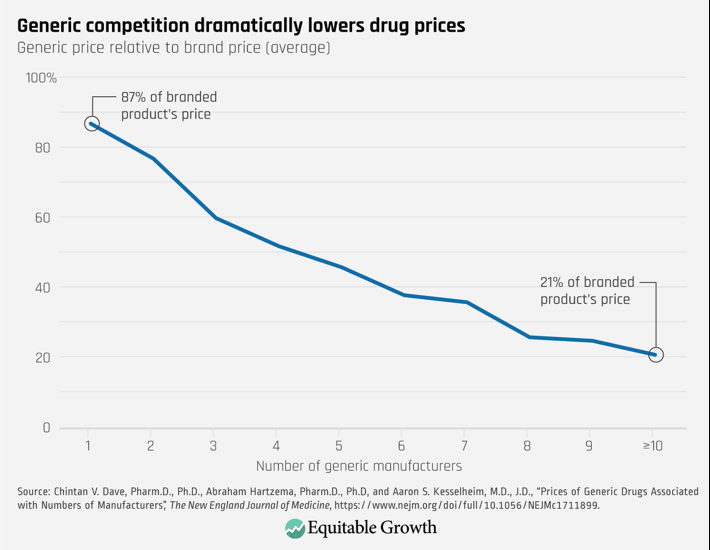So here is how market definition works in pharma antitrust litigation involving generic entry. 1. It is undisputed that the generic product will take substantial share (80 to 90+) quickly from the brand at a significantly lower prices (minimum 20 percent). 1/ https://twitter.com/Michael_Kades/status/1300553031470153728">https://twitter.com/Michael_K...
Therefore, eliminating or delaying generic entry through improper means is anticompetitive. The rest of the case should be about whether the conduct at issue is anticompetitive, whether it delayed competition or eliminated pot. competition, and the justifications. 2/n
But, no, defendants will argue the market has to be broader than the product and its generic because there are other products that do the same thing, single products can& #39;t be a monopoly, look other products detail doctors against the product, and I& #39;m sure I have forgotten a few.
Oh and, the brand can have market power because generic entry causes total output of the brand+generic to go down. Therefore, the brand does not have market power. If you& #39;re not well-versed in the intricacies of antitrust expertise, you might be thinking: 4/
wait are you saying that if a brand simply paid a generic to stay out of the market, there wouldn& #39;t be anticompetitive harm because the brand does not have market power? Defendants avoid that question but that is the only implication of their arg. that brands lack market power
So, then the government and its expert apply the horizontal merger guidelines, the standard approach in a merger case. Under that approach, if a merger between A & B would lead to a 5%, nontransitory price increase, the relevant market is A & B. 6/
So, if a branded company bought the only generic company, would prices be 5 percent higher--obviously yes because generic entry dramatically lowers market price. But, somehow, the judge in the Abbvie sham case rejected that approach. 7/
So, we end up with a ton of evidence on how products that treat the same conditions are or aren& #39;t difference, what the role of the prescribing doctor is, how important side effects are. In the Abbvie sham case, the judge got it right, but it was a waste of time are resources. 8/
While the government is busy proving water makes things wet in every case, the cost of under enforcing antitrust violations is high. The courts took a decade to realize paying off a potential generic competitor in a patent settlement could be anticompetitive. 9/
Over the course of that period, those type of deals skyrocketed and increased prescription drugs costs by over $60B. https://equitablegrowth.org/competitive-edge-underestimating-the-cost-of-underenforcing-u-s-antitrust-laws/.">https://equitablegrowth.org/competiti... Courts accepted a number of bogus justifications, including market definition. /end

 Read on Twitter
Read on Twitter



